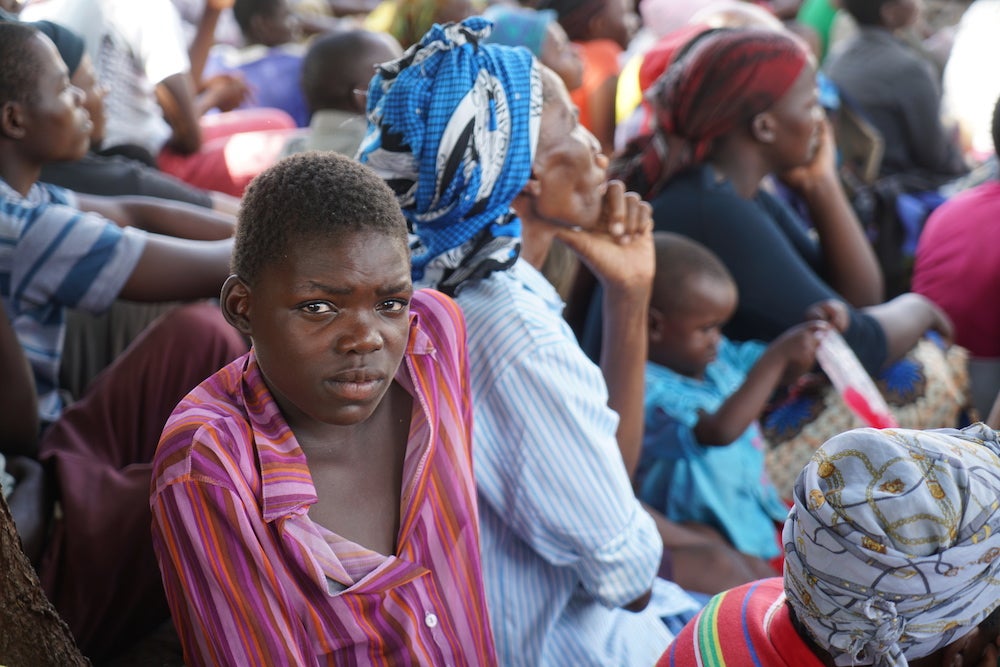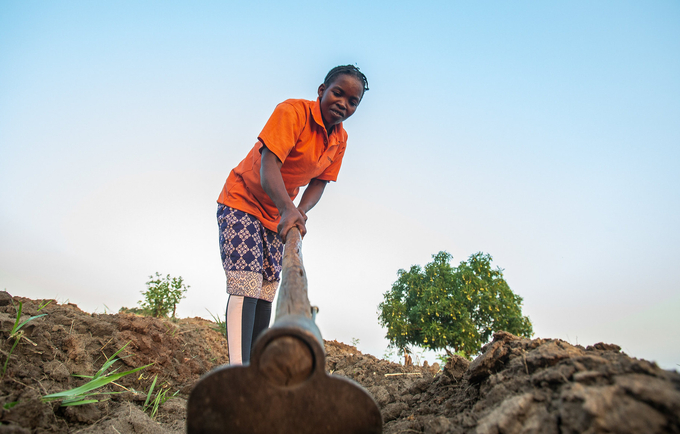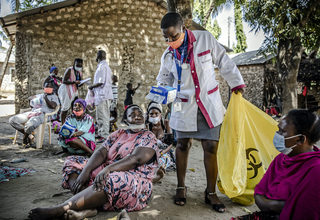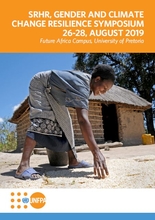JOHANNESBURG, South Africa—The impact of climate change is already being felt and is projected to intensify significantly over the next 10 years. During the Nairobi Summit in Kenya in 2019, a signature session on climate change adaptation and justice focused on the centrality of solutions driven by and aimed at safeguarding the wellbeing of women and girls, young people and marginalized groups, who bear the brunt of climate change and environmental degradation.
Fast forward to 2020: the COVID-19 pandemic has exposed systemic vulnerabilities, inequalities, and lack of protection, bringing new threats to and new impacts for women and girls, young people and, indeed, all people. UNFPA is stepping up its game to ensure that adaptation responses are rights focused, gender sensitive and people centered.
Women and girls suffer from vulnerabilities exacerbated by climate change, including inadequate access to essential health and gender-based violence services.
“Women and girls suffer from vulnerabilities exacerbated by climate change, including rapidly expanding food insecurity, inadequate access to safe, clean water and improved sanitation, and inadequate access to essential health and gender-based violence services,” said Diene Keita, UNFPA Deputy Executive Director - Programme.
“We must protect progress on the transformative results from [the effects of] climate change, and we must enhance our humanitarian preparedness and response to climate-related emergencies,” said Ms. Keita.
She made the remarks during a recent webinar, UNFPA and the Climate Crisis: Strengthening Resilience and Protecting Progress within the Decade of Action, organized by the UNFPA Climate Change Working Group.
The webinar presented UNFPA’s value proposition and provided direction for engagement and discussion with climate change champions and activists such as governments, youth-led organizations, donors and civil society groups, with a clear offer of support on climate change policies and actions.

Working with climate champions for a better world
It is imperative that we move with speed to implement climate action as we build stronger, safer and more resilient communities and systems that will safeguard the livelihoods of all, including women and girls, to ensure that no one is left behind.
“Climate change is a development emergency and it has the potential to derail the achievements of our transformative results, so indeed, we need to step up,” said Dr. Julitta Onabanjo, UNFPA Regional Director for East and Southern Africa.
Climate change is a development emergency and it has the potential to derail the achievements of our transformative results, so indeed, we need to step up.
“There is no time like now to ensure that we all know and understand what value we can bring to the table … but even more importantly, to begin to enable and equip each and every one of us to not only be advocates for this agenda, but to see how that impacts and integrates into the programme, particularly in relation to the [Strategic Plan] going forward,” said Dr. Onabanjo.
Young people, who have championed the International Conference on Population and Development (ICPD), are our partners in building youth resilience and that of their communities, and in transforming societies towards low carbon emissions, climate resilience, and equitable and inclusive development.
“We have to listen to their [young people’s] voices and they need to be part of decision-making for the future,” said Shoko Arakaki, UNFPA Director Humanitarian Office.
Through its blue-print document on climate change, UNFPA aims to ensure that its three transformative results are achieved and sustained amid the worsening climate crisis; contribute to climate resilience for individuals, communities and systems including in the context of the COVID-19 pandemic; advocate for gender-responsive climate action and ensure UNFPA’s operations and programming have an environmental and climate change footprint that is as low as possible, in line with UNFPA’s Greening Initiative and Social and Environmental Standards.




